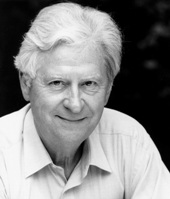
Born in Vienna on May 28, 1931, MD study Univ. of Vienna School of Medicine; specialist in neurology, neuropathology and psychiatry; Ass. Prof. Institute of Neurology Vienna (1966), Full Professor of neuropathology Med. Univ. Vienna (1973), director Dept. of Neurology, Lainz-Hospital, Vienna (1976-30 September 1997); Director, Ludwig Boltzmann Institute of Clinical Neurobiology, Vienna (1977-2002); Guest Professor Univ.of Graz & Innsbruck School of Medicine (1998-2000); since May 2002 Chief, Institute of Clinical Neurobiology, Vienna, Austria. Member of many national and international societies, honorary member of German and Austrian Societies of Neurology, Neuropathology, Alzheimer and Parkinson disease societies, French and Hungarian societies

Born in Vienna on May 28, 1931, MD study Univ. of Vienna School of Medicine; specialist in neurology, neuropathology and psychiatry; Ass. Prof. Institute of Neurology Vienna (1966), Full Professor of neuropathology Med. Univ. Vienna (1973), director Dept. of Neurology, Lainz-Hospital, Vienna (1976-30 September 1997); Director, Ludwig Boltzmann Institute of Clinical Neurobiology, Vienna (1977-2002); Guest Professor Univ.of Graz & Innsbruck School of Medicine (1998-2000); since May 2002 Chief, Institute of Clinical Neurobiology, Vienna, Austria. Member of many national and international societies, honorary member of German and Austrian Societies of Neurology, Neuropathology, Alzheimer and Parkinson disease societies, French and Hungarian societies of Neurology, Intl. Soc. of Neuropathology. Honorary foreign member of the Romanian Academy of Medical Sciences. Several national and international awards (for Med. Science, City of Vienna, Alzheimer-Obelisk, Senator Burda and Lundbeck awards for Parkinson research, A.M.Jakob medal of German Soc. of Neuropathology, Meritorial Service award Amer. Ass. Neuropathol., G. Cotzias Award of the Spanish Soc. of Neurology. Executive editor Acta Neuropathologica (1978-2005), member of editorial boards of many international journals. 556 papers in international refereed journals and 326 reviews and chapters in handbooks, editor and co-editor of 10 books. Reviewer for many international scientific journals. Expertise keywords: Neuropathology, brain aging, Parkinson's disease, Alzheimer's disease, Non-Alzheimer dementias, movement disorders, CNS aging, neurodegenerative disorders and vascular dementia, multiple system atrophy.
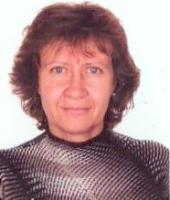
Doris Doudet obtained her PhDs from the University of Bordeaux II, France. She continued her training at Dept of Neurology at Johns Hopkins Medical School and the National Institute of Mental Health, Bethesda , NIH. She joined The University of British Columbia in 1993 and has closely worked with the UBC-TRIUMF PET program ever since. She was Associate Head Research of the Department of Medicine and continues to sit on several ethics review boards and committees. She is Visiting Professor at the PET Center in Aarhus, Denmark. Doris has been or is member of the Board of Director

Doris Doudet obtained her PhDs from the University of Bordeaux II, France. She continued her training at Dept of Neurology at Johns Hopkins Medical School and the National Institute of Mental Health, Bethesda , NIH. She joined The University of British Columbia in 1993 and has closely worked with the UBC-TRIUMF PET program ever since. She was Associate Head Research of the Department of Medicine and continues to sit on several ethics review boards and committees. She is Visiting Professor at the PET Center in Aarhus, Denmark. Doris has been or is member of the Board of Director of several professional organizations (SNIDD, AMI, ABSNM, SCBFM). She was participated, organized or chaired multiple international conferences (NeuroReceptor Mapping 2004, WMIS2012, BrainPET 2011 and is Chair of Local Organizing Committee for the upcoming Brain/BrainPET 2015 meeting in Vancouver). Her research interests include the use of PET as a tool to evaluate compensatory mechanisms in monoaminergic neurotransmission in health, neurodegenerative diseases and mood disorders and their treatments and the development and evaluation of novel labelled PET probes for in vivo imaging.
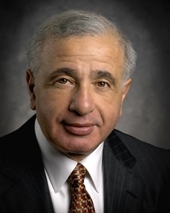
After completing his chief residency in Neurology at the Neurological Institute, Columbia University, New York City, USA, Dr. Jankovic joined the faculty of Baylor College of Medicine, USA in 1977 and found the Parkinson's Disease Center and Movement Disorders Clinic. Dr. Jankovic is past president of the International Parkinson and Movement Disorder Society and an Honorary Member of the American Neurological Association, Australian Association of Neurologists, and the French Neurological Society. He is also the director of the Center of Excellence designated by the National Parkinson Foundation, the Huntington Disease Association of America, and the Tourette Syndrome Association. Selected as

After completing his chief residency in Neurology at the Neurological Institute, Columbia University, New York City, USA, Dr. Jankovic joined the faculty of Baylor College of Medicine, USA in 1977 and found the Parkinson's Disease Center and Movement Disorders Clinic. Dr. Jankovic is past president of the International Parkinson and Movement Disorder Society and an Honorary Member of the American Neurological Association, Australian Association of Neurologists, and the French Neurological Society. He is also the director of the Center of Excellence designated by the National Parkinson Foundation, the Huntington Disease Association of America, and the Tourette Syndrome Association. Selected as a 'Great Teacher' by the National Institute of Health, Dr. Jankovic is the recipient of many other honors including the American Academy of Neurology Movement Disorders Research Award, sponsored by the Parkinson's Disease Foundation, the Guthrie Family Humanitarian Award, presented by the Huntington's Disease Society of America, the Lifetime Achievement Award from the national Tourette Syndrome Association, and the Baylor College of Medicine Alumni Association Distinguished Faculty Award and the Master Clinician Lifetime Award. Dr. Jankovic has served as the principal investigator on dozens of clinical trials, has published over 1,000 original articles and chapters, and has edited or co-edited over 50 books and volumes. Dr. Jankovic is current or past member of numerous scientific and medical advisory boards of national and international foundations including the Dystonia Medical Research Foundation, International Tremor Foundation, and Tourette Syndrome Association. Dr. Jankovic also is or has been a member of the Executive Scientific Advisory Board of the Michael J. Fox Foundation for Parkinson's Research and the National Parkinson Foundation Clinical and Scientific Advisory Board. He has served on editorial boards of Neurology, Movement Disorders, Journal of Neurology Neurosurgery and Psychiatry, Acta Neurologica Scandinavica, Journal of Neurological Sciences, Journal of Parkinson's Disease, Neurotherapeutics, Tremor and Other Hyperkinetic Movements, Neurology Medlink, and other scientific, peer-review journals. Dr. Jankovic has mentored numerous fellows and other trainees many of whom have become leaders in the field of movement disorders.
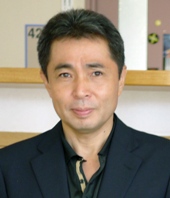
Dr Miyati completed his doctorate (Doctor of Engineering) in studies on developments of imaging and analytical methods and evaluations of properties mainly on image quality in magnetic resonance imaging (MRI) at Gifu University in 2002. Moreover, he earned another degree of Doctor of Medical Science in studies on noninvasive MRI assessment of intracranial compliance in idiopathic normal pressure hydrocephalus at Nagoya City University in 2007. Dr Miyati has been working as an assistant professor (2000-2004), an associate professor (2004-2007), a full professor (2007-present), and a deputy director (2014) at Kanazawa University. During this period, he has been developing and evaluating

Dr Miyati completed his doctorate (Doctor of Engineering) in studies on developments of imaging and analytical methods and evaluations of properties mainly on image quality in magnetic resonance imaging (MRI) at Gifu University in 2002. Moreover, he earned another degree of Doctor of Medical Science in studies on noninvasive MRI assessment of intracranial compliance in idiopathic normal pressure hydrocephalus at Nagoya City University in 2007. Dr Miyati has been working as an assistant professor (2000-2004), an associate professor (2004-2007), a full professor (2007-present), and a deputy director (2014) at Kanazawa University. During this period, he has been developing and evaluating noninvasive bio-functional imaging and analytical methods in MRI such as the brain hemodynamics, hydrodynamics, and biomechanics. Dr Miyati is also a manager of Wellness Promotion Science Center, Kanazawa University (2008-present), and investigating applications of neuro-MRI to health sciences. Dr Miyati is on several academic societies (International Society for Magnetic Resonance in Medicine, American Association of Physicists in Medicine, Japanese Society for Magnetic Resonance in Medicine, etc), and has held the important positions in those. Dr Miyati has published 26 books and more than 330 journal articles, received 23 scientific awards, and been invited 140 lectures in MRI.
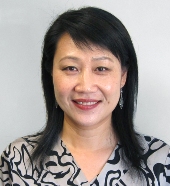
Dr. Wu received a medical degree from the Beijing Medical University (Peking University Health Science Center) in 1984, and Ph.D. at the University of Texas Medical Branch (UTMB) at Galveston in 1991. She is currently a Full Professor in the Department of Neuroscience and Cell Biology, and an Investigator in the George P. and Cynthia Woods Mitchell Center for Neurodegenerative Diseases, the Moody Center for Traumatic Brain & Spinal Cord Injury Research, and the TIRR Mission Connect. Dr. Wu's current study focuses on exploring the biology and therapeutic potentials of human and rodent neural stem cells. Her translational research interests

Dr. Wu received a medical degree from the Beijing Medical University (Peking University Health Science Center) in 1984, and Ph.D. at the University of Texas Medical Branch (UTMB) at Galveston in 1991. She is currently a Full Professor in the Department of Neuroscience and Cell Biology, and an Investigator in the George P. and Cynthia Woods Mitchell Center for Neurodegenerative Diseases, the Moody Center for Traumatic Brain & Spinal Cord Injury Research, and the TIRR Mission Connect. Dr. Wu's current study focuses on exploring the biology and therapeutic potentials of human and rodent neural stem cells. Her translational research interests include amyotrophic lateral sclerosis, spinal cord injury, traumatic brain injury, addiction and neural infection.
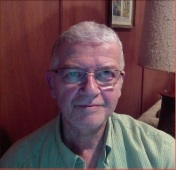
I was trained in behavioral analysis, neurophysiology, neuroanatomy and neuropharmacology. My research was then aimed at developing an understanding of the neural bases of aggressive behavior. These studies focused on the neurophysiological mechanisms and underlying neuroanatomical circuitry governing limbic system control of aggressive behavior. Later studies addressed the neuropharmacological mechanisms mediating aggressive processes and the synaptic sites where neurotransmitters act to mediate such behaviors. Then, this research program was directed at identifying the role of pro-inflammatory cytokines in the regulation of aggression and the sites in the brain where these cytokines mediate this process as well as the neuropharmacological

I was trained in behavioral analysis, neurophysiology, neuroanatomy and neuropharmacology. My research was then aimed at developing an understanding of the neural bases of aggressive behavior. These studies focused on the neurophysiological mechanisms and underlying neuroanatomical circuitry governing limbic system control of aggressive behavior. Later studies addressed the neuropharmacological mechanisms mediating aggressive processes and the synaptic sites where neurotransmitters act to mediate such behaviors. Then, this research program was directed at identifying the role of pro-inflammatory cytokines in the regulation of aggression and the sites in the brain where these cytokines mediate this process as well as the neuropharmacological mechanisms by which these cytokines affect aggression. Other research endeavors included studies on several of the mechanisms and brain regions underlying epileptic disorders. Further academic pursuits included the publication of textbooks of neuroscience, question and answer review books on neuroscience, and a text on the neurobiology of aggression and rage.
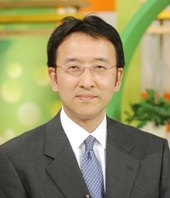
Takashi Ono was appointed as Professor and chairman of Orthodontic Science, Graduate School Tokyo Medical and Dental University (TMDU) in 2010. He is also Deputy Director of International Student Exchange, TMDU. He serves as an editorial board member for several international peer-reviewed journals and has published more than 130 articles (in English, Japanese and German) that are related to Orthodontics, craniofacial function/dysfunction, sleep-related respiratory disorders, and brain activity. Research Interests: Craniofacial function/dysfunction, Sleep-related respiratory disorders, Brain activity related to oral function/dysfunction and obstructive sleep apnea.

Takashi Ono was appointed as Professor and chairman of Orthodontic Science, Graduate School Tokyo Medical and Dental University (TMDU) in 2010. He is also Deputy Director of International Student Exchange, TMDU. He serves as an editorial board member for several international peer-reviewed journals and has published more than 130 articles (in English, Japanese and German) that are related to Orthodontics, craniofacial function/dysfunction, sleep-related respiratory disorders, and brain activity. Research Interests: Craniofacial function/dysfunction, Sleep-related respiratory disorders, Brain activity related to oral function/dysfunction and obstructive sleep apnea.
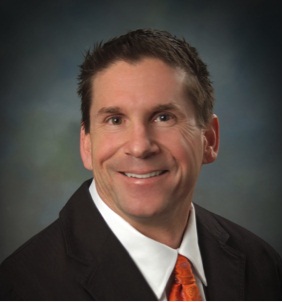
Dr. Troy T. Rohn obtained his Ph.D. in pharmacology from the University of Washington, Department of Pharmacology in 1994. He completed postdoctoral stints at INSERM (Paris, France), Montana State University, and the Institute for Memory Impairments and Neurological Disorders at UC Irvine. Currently, Dr. Rohn is a Professor in the Department of Biological Sciences at Boise State University. His research focuses on the role that certain proteases play in promoting the pathology associated with different neurodegenerative diseases. For example, in Alzheimer's disease, his lab has investigated the role that caspases may play in promoting neurofibrillary tangle formation. More recently,

Dr. Troy T. Rohn obtained his Ph.D. in pharmacology from the University of Washington, Department of Pharmacology in 1994. He completed postdoctoral stints at INSERM (Paris, France), Montana State University, and the Institute for Memory Impairments and Neurological Disorders at UC Irvine. Currently, Dr. Rohn is a Professor in the Department of Biological Sciences at Boise State University. His research focuses on the role that certain proteases play in promoting the pathology associated with different neurodegenerative diseases. For example, in Alzheimer's disease, his lab has investigated the role that caspases may play in promoting neurofibrillary tangle formation. More recently, his research has begun to assess the proteolytic consequences of ApoE4, a major genetic risk factor in Alzheimer's.
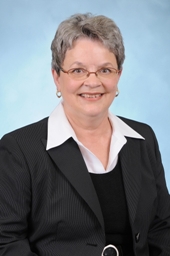
Dr. Hershey received a PhD in Pharmacology & Neurobiology from Washington University in St. Louis in 1973 prior to earning an MD from the same institution in 1975. After completing a medical internship at St. Johns Mercy Medical Center in St. Louis and a Neurology residency at Barnes Hospital in St. Louis, she completed a Clinical Pharmacology fellowship at Strong Memorial Hospital in Rochester, NY. While she was on the faculty at the University of Buffalo, she served as the Chief of Neurology at the VA Western New York from 1986-2010. She has been consistently named to the

Dr. Hershey received a PhD in Pharmacology & Neurobiology from Washington University in St. Louis in 1973 prior to earning an MD from the same institution in 1975. After completing a medical internship at St. Johns Mercy Medical Center in St. Louis and a Neurology residency at Barnes Hospital in St. Louis, she completed a Clinical Pharmacology fellowship at Strong Memorial Hospital in Rochester, NY. While she was on the faculty at the University of Buffalo, she served as the Chief of Neurology at the VA Western New York from 1986-2010. She has been consistently named to the Best Doctors in America list since 2003. She received the faculty teaching award from the neurology residents at the University of Buffalo in 2007. She served as a senior examiner for the ABPN oral boards from 1988-2012. She is a fellow of AAN, ANA and AHA. In 2010, she joined the faculty at the University of Oklahoma as Professor of Neurology and Director of Dementia and Behavioral Neurology, where she holds the Ethelyn McElwee Endowed Chair of Alzheimers Disease Research. She enjoys working with students, residents and investigators in other fields (biochemistry, nursing, psychology, neuropsychology, epidemiology and occupational therapy) performing clinical trials, case-control studies and biomarker studies of patients who have Alzheimers disease, mild cognitive impairment, dementia with Lewy bodies, and progressive supranuclear palsy. She sits on the editorial board of Neurology.
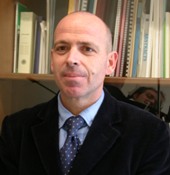
Prof. Michele MAFFIA, PhD, is actually Professor of Physiology at the University of Salento (Lecce, Italy), Director of the Laboratory of Clinical Proteomic, 'G. Paolo II' Hospital, Lecce and Director of Laboratory of Interdisciplinary Research Applied to Medicine (DreAM), 'V. Fazzi' Hospital, Lecce. His expertise, documented by several pubblications on high impact factor journals, is mainly focused on: 1) dismetabolism of micro-nutrients and essential metals and correlation with neurodegenerative and oncological diseases; 2) clinical proteomic applications in the discovery of new biomarker for the diagnose and therapy of neurodegenerative and oncologycal disease; 3) physiology of nutrition. In the last 10

Prof. Michele MAFFIA, PhD, is actually Professor of Physiology at the University of Salento (Lecce, Italy), Director of the Laboratory of Clinical Proteomic, 'G. Paolo II' Hospital, Lecce and Director of Laboratory of Interdisciplinary Research Applied to Medicine (DreAM), 'V. Fazzi' Hospital, Lecce. His expertise, documented by several pubblications on high impact factor journals, is mainly focused on: 1) dismetabolism of micro-nutrients and essential metals and correlation with neurodegenerative and oncological diseases; 2) clinical proteomic applications in the discovery of new biomarker for the diagnose and therapy of neurodegenerative and oncologycal disease; 3) physiology of nutrition. In the last 10 years his research field was focused to the investigation of the biological basis of neurodegenerative and tumorigenic processes. In particular his research group of Adaptive Physiology Laboratory at the University of Salento, was focused on the studies of copper homeostasis in many cell models and possible relationship between copper dismetabolisms and prion diseases, demonstrating for the first time the direct role of prion proteins in the cell copper uptake. In 2006, he created the Clinical Proteomic Laboratory of the 'V. Fazzi' Hospital in Lecce, obtaining some interesting results on the discovery of new molecular markers for diagnosis of multiple sclerosis and tumors. More recently his research group was focalized in the study of new therapies for Parkinson, based on the use of phytochemicals as resveratrol and curcumine. He collaborates with some national and international Laboratories as: the National Nanotechnology Laboratory (NNL), Lecce, Italy; the Institute of Nutritional Science, University of Munich, Germany; the Norwegian School of Veterinary Science (NVH), University of Oslo, Norway.
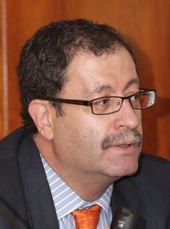
Francisco Lopez-Munoz, MD, PhD, is currently Professor of Pharmacology, Director of International Doctorate School, and Sub-Director of Chair of Genetic Medicine at Camilo Jose Cela University, and Research Fellow at 'Hospital 12 de Octubre' Research Institute (Madrid, Spain). He is specialist in Pharmaceutical Medicine, worked in the pharmaceutical industry as Medical Director, and your research interest are the neuropsychopharmacology and neurosciences. Dr. Lopez-Munoz is editor/author of 20 books, highlighting its History of Psychopharmacology (4 volumes; NPP Books, 2014), and Neurobiology of Depression (Taylor& Francis, 2012), and 185 chapters of books related to the psychopharmacology. He has published 118 papers on

Francisco Lopez-Munoz, MD, PhD, is currently Professor of Pharmacology, Director of International Doctorate School, and Sub-Director of Chair of Genetic Medicine at Camilo Jose Cela University, and Research Fellow at 'Hospital 12 de Octubre' Research Institute (Madrid, Spain). He is specialist in Pharmaceutical Medicine, worked in the pharmaceutical industry as Medical Director, and your research interest are the neuropsychopharmacology and neurosciences. Dr. Lopez-Munoz is editor/author of 20 books, highlighting its History of Psychopharmacology (4 volumes; NPP Books, 2014), and Neurobiology of Depression (Taylor& Francis, 2012), and 185 chapters of books related to the psychopharmacology. He has published 118 papers on indexed journals and 190 in Spanish and Latin American journals, and has given 28 conferences and 138 communications in scientific meetings. Dr. Lopez-Munoz is member of several scientific societies and editorial boards, and has participated, as visiting Professor, in postgraduate and doctorate courses from different Spanish and international academic centres. Research interest: Biological bases of drug abuse and dual diagnosis, psychotropic drugs interactions, neurobiology of metal disorders, bibliometric techniques applied to mental health-related disciplines and neuropsychopharmacology, combination therapies with antidepressant drugs in resistant depression and with antipsychotics drugs in patients with refractory schizophrenia, and the history of the psychopharmacology and neurosciences.

Dr. Nobuhiko Miyazawa graduated from Gunma University School of Medicine. Currently he is a director of PET center at Kofu Neurosurgical Hospital, Kofu-city. He has 33 publications. His research interest includes in 1. Functional Image and Molecular Imaging of brain and nervous system, 2. Alzheimer's disease and related disorders, 3. Stroke 4. Neurosurgical disorders (esp.: Aneurysm, Cerebral Occlusive Diseases) 5. Spine and Spinal cord.

Dr. Nobuhiko Miyazawa graduated from Gunma University School of Medicine. Currently he is a director of PET center at Kofu Neurosurgical Hospital, Kofu-city. He has 33 publications. His research interest includes in 1. Functional Image and Molecular Imaging of brain and nervous system, 2. Alzheimer's disease and related disorders, 3. Stroke 4. Neurosurgical disorders (esp.: Aneurysm, Cerebral Occlusive Diseases) 5. Spine and Spinal cord.
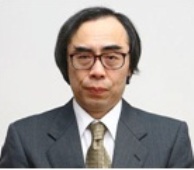
Dr.Yamanaka is now a Professor at Kyoto Prefectural University of Medicine, Kyoto, Japan. He earned his MD at Niigata University, Japan, in 1982 and completed a neurosurgical residency training at its affiliated hospitals. He received his academic degree (Dr. Med. Sci.) from Niigata University. Following research fellowships at the National Institutes of Health in the United States from 1994 to 1998, he assumed the position of Assistant Professor and Lecturer at the Department of Neurosurgery in the Brain Research Institute at Niigata University. In 2006, he was promoted to Professor of the Research Center of Innovative Cancer Therapy at Kurume

Dr.Yamanaka is now a Professor at Kyoto Prefectural University of Medicine, Kyoto, Japan. He earned his MD at Niigata University, Japan, in 1982 and completed a neurosurgical residency training at its affiliated hospitals. He received his academic degree (Dr. Med. Sci.) from Niigata University. Following research fellowships at the National Institutes of Health in the United States from 1994 to 1998, he assumed the position of Assistant Professor and Lecturer at the Department of Neurosurgery in the Brain Research Institute at Niigata University. In 2006, he was promoted to Professor of the Research Center of Innovative Cancer Therapy at Kurume University School of Medicine. He joined the Faculty at Kyoto Prefectural University of Medicine in 2010. His main research interests include translational biochemical research in clinical oncology, including brain tumors. He has board certifications for Medical Oncology, Neurosurgery, Stroke and Cerebrovascular Diseases. Expertise Keywords of Research Work: Clinical oncology, medical oncology, molecular targeted therapy, immunotherapy, brain tumor, neurosurgery.
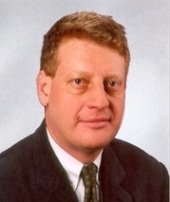
As a long time educator who has taught extensively using a variety of formats, both traditional and problem-and case-based, Professor Petroianu serves as Chairman of the Department of Cellular Biology and Associate Dean for Clinical Research in the FIU College of Medicine. He has been on exam committees and written several Q&A books for residents preparing for certification exams. Dr. Petroianu has received multiple teaching awards, such as numerous Best Lecturer Awards at University of Heidelberg at Mannheim and the Excellence in Teaching Award at the United Arab Emirates University. Dr. Petroianu received his PhD, MD and Habilitation from the

As a long time educator who has taught extensively using a variety of formats, both traditional and problem-and case-based, Professor Petroianu serves as Chairman of the Department of Cellular Biology and Associate Dean for Clinical Research in the FIU College of Medicine. He has been on exam committees and written several Q&A books for residents preparing for certification exams. Dr. Petroianu has received multiple teaching awards, such as numerous Best Lecturer Awards at University of Heidelberg at Mannheim and the Excellence in Teaching Award at the United Arab Emirates University. Dr. Petroianu received his PhD, MD and Habilitation from the University of Heidelberg at Mannheim. He has worked in Anesthesiology and Emergency Medicine and has board certificationsin Pharmacology and Toxicology (Germany) and Clinical Pharmacology (American Boardof Clinical Pharmacology).He also is a Diplomat of the American Academy ofPain Management.Here mained on the Faculty at University of Heidelberg at Mannheim and rose through the ranks until 2002, when he became Chair of the Department of Pharmacology and The rapeutics at the United Arab Emirates University. He is now leading a large department with multiple research and educational responsibilities and remains active at the College level, serving on numerous committees. Dr. Petroianu has authored more than 150 peer-reviewed research papers,60 other non-abstracted publications and several books. His most recentresearch is on cholinesteraseprotection and reactivation in relation to organophosphate exposure. For his contribution to Pharmacology, Dr. Petroianu was awarded the Issekutz Medal of the Hungarian Society of Pharmacology and Toxicology and received an Honorary Doctoral Degree fromthe Semmelweis University in Budapest.
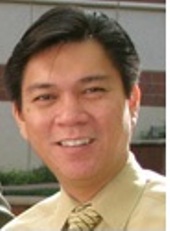
Dr Fernandez is an internationally recognized expert in movement disorders who has been voted one of the Best Doctors in America by his peers. After completing his medical training, he joined the faculty of Brown University School of Medicine as Assistant Professor of the Department of Clinical Neurosciences and served as Associate Director of the Movement Disorders Unit and Neurological Director of its Functional Neurosurgical Program. In 2003, Dr Fernandez relocated to the University of Florida, where he eventually became Director of the Clinical Research Unit for Neurological and Psychiatric Disorders, Vice Chair of Academic Affairs, and Professor of Neurology

Dr Fernandez is an internationally recognized expert in movement disorders who has been voted one of the Best Doctors in America by his peers. After completing his medical training, he joined the faculty of Brown University School of Medicine as Assistant Professor of the Department of Clinical Neurosciences and served as Associate Director of the Movement Disorders Unit and Neurological Director of its Functional Neurosurgical Program. In 2003, Dr Fernandez relocated to the University of Florida, where he eventually became Director of the Clinical Research Unit for Neurological and Psychiatric Disorders, Vice Chair of Academic Affairs, and Professor of Neurology prior to joining Cleveland Clinic. An active and productive researcher, he has initiated or participated in over 60 clinical trials and has published his findings in well over 300 articles and abstracts on Parkinson's disease, cervical dystonia, blepharospasm, and other movement disorders. He has nearly 50 published book chapters and books to his credit, and has served on the editorial board of Movement Disorders and is currently an editorial board member of the American Journal of Clinical Neurology, European Neurological Journal, and Clinical Neuropharmacology. Dr Fernandez is a fellow of the American Academy of Neurology and the American Neurological Association. He is currently elected as the Co-Chair of the Parkinson Study Group, the Interim President of the World Neurology Foundation, and is serving his third term as Co-Medical Editor of the Movement Disorders Society Website. He has been a Councilor for the AAN Movement Disorders Section, Executive Committee Member of the Parkinson Study Group and Dystonia Study Group and was the President of the Florida Society of Neurology. Recently, he was awarded the Presidential Distinguished Service Award by the Movement Disorders Society at the 16th International Congress for Parkinson's Disease and Movement Disorders in Dublin, Ireland in 2012.
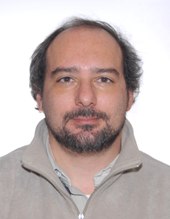
Dr Davide V Moretti is consultant neurologist, chief of the clinical neurophysiology service and researcher at the National Institute of Research and Cure for Mental disorders and Dementia S john of God, Brescia, Italy. He received his medical degree from Catholic University in Rome and completed his residency in neurology and fellowship in movement disorders at University of Trieste, Italy. Moreover, he received the PhD in neurophysiology at La Sapienza University. Dr Moretti is currently involved in research and care of subjects with Alzheimer's disease and dementia in the Memory Clinic/Alzheimer Operative Unit of the S. John of God Institute.

Dr Davide V Moretti is consultant neurologist, chief of the clinical neurophysiology service and researcher at the National Institute of Research and Cure for Mental disorders and Dementia S john of God, Brescia, Italy. He received his medical degree from Catholic University in Rome and completed his residency in neurology and fellowship in movement disorders at University of Trieste, Italy. Moreover, he received the PhD in neurophysiology at La Sapienza University. Dr Moretti is currently involved in research and care of subjects with Alzheimer's disease and dementia in the Memory Clinic/Alzheimer Operative Unit of the S. John of God Institute. Moreover, he is the chief of the clinical neurophysiology unit. His research is primary concerned about Alzheimer's disease (in particular quantitative EEG evaluation of Alzheimer's patients both in prodromic and clinically evident phase of the disease). Parkinson's disease and clinical neurophysiology.
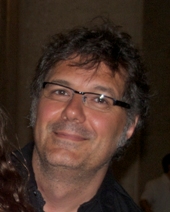
Lucas Pozzo-Miller completed his undergraduate studies in Biology (MS, 1986) and earned his graduate degree in Neurobiology from the Universidad Nacional de Cordoba, Argentina (PhD, 1989). He trained as postdoctoral fellow at Case Western Reserve University, Cleveland OH, with Dennis Landis (1990-1992), and at the former Roche Institute of Molecular Biology, Nutley NJ, with John Connor(1992-1995). He performed research at the Marine Biological Laboratory, Woods Hole MA, with Rodolfo Llinas (1994 Grass Foundation Fellow, and 1995 Lakian Foundation Fellow). He held a Senior Staff Fellow position at the National Institutes of Health, Bethesda MD, in the laboratory of Tom Reese

Lucas Pozzo-Miller completed his undergraduate studies in Biology (MS, 1986) and earned his graduate degree in Neurobiology from the Universidad Nacional de Cordoba, Argentina (PhD, 1989). He trained as postdoctoral fellow at Case Western Reserve University, Cleveland OH, with Dennis Landis (1990-1992), and at the former Roche Institute of Molecular Biology, Nutley NJ, with John Connor(1992-1995). He performed research at the Marine Biological Laboratory, Woods Hole MA, with Rodolfo Llinas (1994 Grass Foundation Fellow, and 1995 Lakian Foundation Fellow). He held a Senior Staff Fellow position at the National Institutes of Health, Bethesda MD, in the laboratory of Tom Reese (1995-1998), and joined the faculty of the Department of Neurobiology at The University of Alabama at Birmingham in 1998. He is presently Professor of Neurobiology, and Associate Director of the Comprehensive Neuroscience Center.
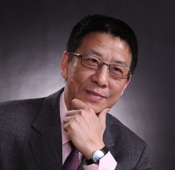
Dr. Tiansheng Sun is Vice president of Beijing Military General Hospital, Chair of orthopedic department, professor and doctoral supervisor, enjoying special allowances of state government. Graduated from the First Military Medical University, studied under the tutelage of renowned orthopedic specialist Professor Xu Shaoting, engaged in basic and clinical research in orthopedics. Undertake more than 10 projects, including an international cooperation project, four national research, six key projects of the military and the Beijing city, funding of more than 500 million. One hundred and seventy papers have been published as the first author and corresponding author. Seventeen articles of SCI and

Dr. Tiansheng Sun is Vice president of Beijing Military General Hospital, Chair of orthopedic department, professor and doctoral supervisor, enjoying special allowances of state government. Graduated from the First Military Medical University, studied under the tutelage of renowned orthopedic specialist Professor Xu Shaoting, engaged in basic and clinical research in orthopedics. Undertake more than 10 projects, including an international cooperation project, four national research, six key projects of the military and the Beijing city, funding of more than 500 million. One hundred and seventy papers have been published as the first author and corresponding author. Seventeen articles of SCI and 8 books have been published. Getting 10 Technology Progress Awards, including one Science and Technology Award of Education Ministry, five award of Military Science and Technology Progress Prize, two Beijing Science and Technology Progress Award, one Chinese Medical prize. Research interests: Spinal Cord Injury: The pathology of spinal cord injury, spinal cord war injuries, spinal cord injury in electrical physiology and spinal cord injury in high-pressure oxygen treatment. Damage Control surgery: A series of basic and clinical studies of DCO

Dr. Tomohiro Shirasaka is currently a Director at Teine Keijinkai Hospital, Department of Neuropsychiatry. He obtained his Doctor of Medicine from Saitama Medical University in 2005 and he received a Ph.D. in Neuropsychopharmacology from the Sapporo Medical University in 2012. His Ph.D. research was translational research, using stem cell transplantation for fetal alcohol spectrum disorder and the other psychiatric disorders. He had also been a board member of the Japan Psychiatrist Organization and worked as a research fellow at the department of neuropsychiatry, Sapporo Medical University School of Medicine. And then he worked as a director of the Department of

Dr. Tomohiro Shirasaka is currently a Director at Teine Keijinkai Hospital, Department of Neuropsychiatry. He obtained his Doctor of Medicine from Saitama Medical University in 2005 and he received a Ph.D. in Neuropsychopharmacology from the Sapporo Medical University in 2012. His Ph.D. research was translational research, using stem cell transplantation for fetal alcohol spectrum disorder and the other psychiatric disorders. He had also been a board member of the Japan Psychiatrist Organization and worked as a research fellow at the department of neuropsychiatry, Sapporo Medical University School of Medicine. And then he worked as a director of the Department of Neuropsychiatry. His research interest: Addiction psychiatry including Internet addiction, pathological gambling, Stem cell therapy for psychiatric disorders, psychooncology.
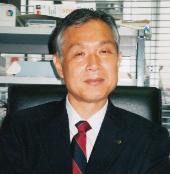
Dr. Yasuo Iwasaki is Professor and Chairman at Toho University Omori Medical School. Yasuo Iwasaki Graduated from Toho University Medical School at Tokyo in Japan on March 31th 1978, passed the Japanese National Board Medical Examination on May 1978. He worked as research fellow in Department of Neurology, Baylor College of Medicine, in Houston under Dr. Appel in USA between October 1984 and October 1986. He was an Assistant professor of Neurology, Toho University Ohashi Hospital from April 1991 and associate professor of Neurology, Toho University Ohashi Hospital on April 1997. Presently he is Professor and Chairman in Department of

Dr. Yasuo Iwasaki is Professor and Chairman at Toho University Omori Medical School. Yasuo Iwasaki Graduated from Toho University Medical School at Tokyo in Japan on March 31th 1978, passed the Japanese National Board Medical Examination on May 1978. He worked as research fellow in Department of Neurology, Baylor College of Medicine, in Houston under Dr. Appel in USA between October 1984 and October 1986. He was an Assistant professor of Neurology, Toho University Ohashi Hospital from April 1991 and associate professor of Neurology, Toho University Ohashi Hospital on April 1997. Presently he is Professor and Chairman in Department of Neurology Toho University Omori Hospital from April 2005 and present time. He had published more than 200 English papers. Members and council of society is as follows: Fellow Member of American Academy of Neurology, active Member of American Society of Neuroimaging, world Federation of Neurology, Research Group of ALS/MND, member of Neurorehabilitation in World Federation of Neurology, editorial Board in J Cell Sci, council member of Japanese Society of Neurology, council member of Japanese Society of Neurotherapeutics, council member of International Association of Neurorestoratology, council member of Neuroprotection and neuroregeneration and council member of Global College of Neuroprotection and Neurodegeneration.
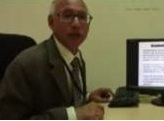
Dr. Sushil Sharma, is a Professor and Course Director of Pharmacology at the Saint James School of Medicine, Bonaire. He received Ph.D. in Neuropharmacology from A.I.IM.S, New Delhi; Radiopharmaceutical Training from BARC, Bombay, GE, Siemens, Agilent Technologies, & Cardinal Health in USA; Served as Research Officer in AIIMS:1979-88); awarded Royal Society Fellowship (UK:1988-89); MHRC Post-doctoral Fellowship (Canada: 1989-91); Research Officer (University of Montreal:1993-94); Research Associate (McGill University:1994-95); Offered Deputy Director (Scientist-E) Position in Defense Research Institute (New Delhi -93-97); Senior Scientific Officer (Clinical Research Institute of Montreal:1995-97); Research Scientist (University of Manitoba:1997-99); Assistant Professor 2000-04; Associate Professor & Director (Research)

Dr. Sushil Sharma, is a Professor and Course Director of Pharmacology at the Saint James School of Medicine, Bonaire. He received Ph.D. in Neuropharmacology from A.I.IM.S, New Delhi; Radiopharmaceutical Training from BARC, Bombay, GE, Siemens, Agilent Technologies, & Cardinal Health in USA; Served as Research Officer in AIIMS:1979-88); awarded Royal Society Fellowship (UK:1988-89); MHRC Post-doctoral Fellowship (Canada: 1989-91); Research Officer (University of Montreal:1993-94); Research Associate (McGill University:1994-95); Offered Deputy Director (Scientist-E) Position in Defense Research Institute (New Delhi -93-97); Senior Scientific Officer (Clinical Research Institute of Montreal:1995-97); Research Scientist (University of Manitoba:1997-99); Assistant Professor 2000-04; Associate Professor & Director (Research) UND School of Medicine, Grand Forks:2004-08); Associate Professor & Director (Methodist Hospital) & Research Scientist (University Texas Medical Center:2008-11). Organized and Chaired several World Conferences; was awarded 5 Gold Medals; Certificate of Honor IT Nano-2014 Conference, Boston. (Original Discoveries: Electromicroinjector; Charnoly Body in Purkinje Neurons, IL-10 Receptors on Cortical Neurons, & MTs-Gene-Manipulated Mice) Research Interests: Neuropharmacology; Disease-Specific Biomarkers, Nanomedicine, Stem Cells, Regenerative Medicine, Neurodegenerative diseases, Multimodality Molecular Imaging, Personalized Theranostics.
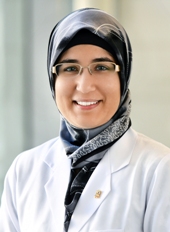
Dr. Fariha Jamal completed her medical education (MBBS) from King Edward Medical College during 11/1992-06/1998 and undergraduate education from Lahore College for Women. She completed Neurology residency at University of Kentucky from 07/2008 to 06/2012 and then did Movement disorders fellowship at University of Kentucky from 07/2012-06/2013. Her Research Interests: Movement Disorders including Parkinson's Disease, Essential Tremor, Tardive Dyskinesia and Restless leg Syndrome. She is really interested in research regarding Neurostimulation/Deep Brain Stimulation in Movement Disorders.

Dr. Fariha Jamal completed her medical education (MBBS) from King Edward Medical College during 11/1992-06/1998 and undergraduate education from Lahore College for Women. She completed Neurology residency at University of Kentucky from 07/2008 to 06/2012 and then did Movement disorders fellowship at University of Kentucky from 07/2012-06/2013. Her Research Interests: Movement Disorders including Parkinson's Disease, Essential Tremor, Tardive Dyskinesia and Restless leg Syndrome. She is really interested in research regarding Neurostimulation/Deep Brain Stimulation in Movement Disorders.
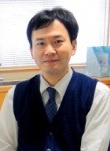
Dr. Tsuyoshi Miyaoka is an Associate Professor at the Shimane University School of Medicine, Izumo, Japan. His research interest in 1. Treatment-resistant schizophrenia, 2. Drug discovery of anti-inflammatory for treatment of psychiatric disorder 3. Herbal medicine for neuropsychiatric disorder.

Dr. Tsuyoshi Miyaoka is an Associate Professor at the Shimane University School of Medicine, Izumo, Japan. His research interest in 1. Treatment-resistant schizophrenia, 2. Drug discovery of anti-inflammatory for treatment of psychiatric disorder 3. Herbal medicine for neuropsychiatric disorder.

Dr. Vallabhajosula is an Assistant Professor in the Department of Physical Therapy Education at Elon University. He completed his PhD with specialization in Biomechanics from University of Florida and a post-doctoral position at University of Nebraska at Omaha. He has worked with persons with Parkinson's disease investigating the effects of deep brain stimulation and Tai Chi on postural control and gait. His research focusses on quantitative assessment of the effects of aging and neurological conditions like Parkinson's disease and Multiple Sclerosis on postural control and gait. His research also examines the risk of falls in these populations. Dr. Vallabhajosula's work

Dr. Vallabhajosula is an Assistant Professor in the Department of Physical Therapy Education at Elon University. He completed his PhD with specialization in Biomechanics from University of Florida and a post-doctoral position at University of Nebraska at Omaha. He has worked with persons with Parkinson's disease investigating the effects of deep brain stimulation and Tai Chi on postural control and gait. His research focusses on quantitative assessment of the effects of aging and neurological conditions like Parkinson's disease and Multiple Sclerosis on postural control and gait. His research also examines the risk of falls in these populations. Dr. Vallabhajosula's work involves examining both the mechanisms under different conditions as well as the effects of interventions on postural control and gait in these populations. His research interests also expand to estimating the physical activity levels in these populations. Research interests: Biomechanics, Postural control, Gait, Parkinson's disease, Aging, Quantitative assessment techniques.

Dr. Kouichi Ito is currently an Associate Professor in the Department of Neurology at Rutgers-Robert Wood Johnson Medical School. He received training in molecular immunology as a visiting scientist at MIT (1986-1989) and earned his PhD in Immunology from The Jikei University School of Medicine in Tokyo, Japan (1991). Prior to assuming his position at Rutgers-RWJMS, he served as a Laboratory Head within the Department of Immunology at Hoffmann-La Roche (Nutley, NJ) and studied the effects of Human Leukocyte Antigen (HLA) on the development of autoimmune diseases including Multiple Sclerosis (1992-1998). He also served as the Acting Chief of the

Dr. Kouichi Ito is currently an Associate Professor in the Department of Neurology at Rutgers-Robert Wood Johnson Medical School. He received training in molecular immunology as a visiting scientist at MIT (1986-1989) and earned his PhD in Immunology from The Jikei University School of Medicine in Tokyo, Japan (1991). Prior to assuming his position at Rutgers-RWJMS, he served as a Laboratory Head within the Department of Immunology at Hoffmann-La Roche (Nutley, NJ) and studied the effects of Human Leukocyte Antigen (HLA) on the development of autoimmune diseases including Multiple Sclerosis (1992-1998). He also served as the Acting Chief of the Neurological Disease Section in the Neuroimmunology Branch at NIH/NINDS and studied the mechanism of encephalitogenic T cell development using animal models of Multiple Sclerosis (1998-2003). His lab currently focuses on understanding the mechanisms of inflammation-associated neurodegeneration and the linkage between the gut immune system and neurological disorders. Research Interests: Development of new treatments for Multiple Sclerosis. Mechanisms of immune-mediated neuroinflammation and demyelination/axonal loss. A linkage between the gut immunity and neurological disorders.
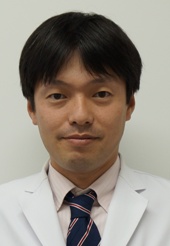
Dr Hikaru Hori is an Assistant Professor of Department of Psychiatry, School of Medicine, University of Occupational and Environmental Health, Kitakyushu, Japan. Dr Hori received MD from University of Occupational and Environmental Health in 2003 prior to earning an PhD in Psychopharmacology & cognition from the same institution in 2012. He was awarded with Dr Paul Janssen Research Award of Japanese Society of Clinical Neuropsychopharmacology 2007 and 2013. Research Interests: Clinical psychopharmacology, Cognitive function, Schizophrenia, Mood disorder.

Dr Hikaru Hori is an Assistant Professor of Department of Psychiatry, School of Medicine, University of Occupational and Environmental Health, Kitakyushu, Japan. Dr Hori received MD from University of Occupational and Environmental Health in 2003 prior to earning an PhD in Psychopharmacology & cognition from the same institution in 2012. He was awarded with Dr Paul Janssen Research Award of Japanese Society of Clinical Neuropsychopharmacology 2007 and 2013. Research Interests: Clinical psychopharmacology, Cognitive function, Schizophrenia, Mood disorder.
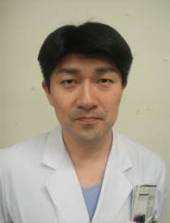
Dr. Saito is a Japanese neurosurgeon with expertise in both neurovascular surgery and molecular biology. He completed his medical degree at the Tohoku University in 1998. He undertook his neurosurgical training at Tohoku University Hospital and Kohnan Hospital. In 2001 he travelled to undertake his basic research training at Dr. Pak H. Chan's laboratory in Department of Neurosurgery, Stanford University. His primary research interest is in cell death and survival pathways after cerebral ischemia. He held a PhD. in molecular biology for neuroscience. He specialised neurovascular surgery at Tohoku University and Kohnan Hospital. He has a particular interest in clinical

Dr. Saito is a Japanese neurosurgeon with expertise in both neurovascular surgery and molecular biology. He completed his medical degree at the Tohoku University in 1998. He undertook his neurosurgical training at Tohoku University Hospital and Kohnan Hospital. In 2001 he travelled to undertake his basic research training at Dr. Pak H. Chan's laboratory in Department of Neurosurgery, Stanford University. His primary research interest is in cell death and survival pathways after cerebral ischemia. He held a PhD. in molecular biology for neuroscience. He specialised neurovascular surgery at Tohoku University and Kohnan Hospital. He has a particular interest in clinical research and surgical treatment for cerebral aneurysm and cerebral ischemia. He is a vice chairman at Department of Neurosurgery, Aomori Prefectural Central Hospital and a part-time lecturer at Department of Neurosurgery, Tohoku University.
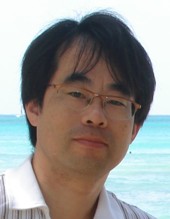
Yasushi Shibata graduated from the School of Medicine, University of Tsukuba, Tsukuba, Japan. He received medical and surgical training at the University Tsukuba Hospital and affiliated hospitals. He conducted basic and clinical research at the Harvard Medical School, Boston, the Beth Israel Deaconess Medical Center, Boston, and the Massachusetts Institute of Technology, Cambridge, MA, USA. His main research interests are brain tumor, neuroradiology, cerebrovascular diseases, headache, and head injury. He published many research papers and edited books. He has received many research grants and awards. He is now the Director and Associated professor, Department of Neurosurgery, Mito Medical Center, University

Yasushi Shibata graduated from the School of Medicine, University of Tsukuba, Tsukuba, Japan. He received medical and surgical training at the University Tsukuba Hospital and affiliated hospitals. He conducted basic and clinical research at the Harvard Medical School, Boston, the Beth Israel Deaconess Medical Center, Boston, and the Massachusetts Institute of Technology, Cambridge, MA, USA. His main research interests are brain tumor, neuroradiology, cerebrovascular diseases, headache, and head injury. He published many research papers and edited books. He has received many research grants and awards. He is now the Director and Associated professor, Department of Neurosurgery, Mito Medical Center, University of Tsukuba. He is the on the board of the Japan Neurosurgical Society, The Japan Stroke Society, and The Japanese Headache Society.
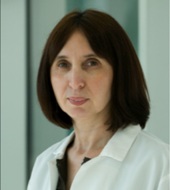
Dr. Tinatin Chabrashvili is a physician-scientist, an Associate Professor of Neurology at Tufts University School of Medicine and the director the Neurodegenerative (dementia) disorders program at Tufts Medical Center in Boston. She combines a unique expertise in movement and neurocognitive disorders. Dr. Chabrashvili completed her Neurology Residency training at Emory University School of Medicine, postdoctoral fellowship at the Medical Neurology Branch/Neurogenetics Unit at NINDS/NIH, Bethesda, MD and the movement disorders fellowship in the Department of Neurogenetics and Extrapiramidal Pathology in the Institute of Neurology Russian Academy of Medical Science, Moscow, where she also obtained her PhD focusing in Parkinson's Disease

Dr. Tinatin Chabrashvili is a physician-scientist, an Associate Professor of Neurology at Tufts University School of Medicine and the director the Neurodegenerative (dementia) disorders program at Tufts Medical Center in Boston. She combines a unique expertise in movement and neurocognitive disorders. Dr. Chabrashvili completed her Neurology Residency training at Emory University School of Medicine, postdoctoral fellowship at the Medical Neurology Branch/Neurogenetics Unit at NINDS/NIH, Bethesda, MD and the movement disorders fellowship in the Department of Neurogenetics and Extrapiramidal Pathology in the Institute of Neurology Russian Academy of Medical Science, Moscow, where she also obtained her PhD focusing in Parkinson's Disease and Huntington's Chorea. Prior to joining Tufts University, she also served as an Assistant Professor of Medicine at the Georgetown University and as an Assistant Professor of Neurology and the director of the Movement Disorders program at Temple University School of medicine, Philadelphia. She gained her expertise in the field of hypertension, vascular biology and oxidative stress in the laboratory of Christopher Wilcox and William Welch at the Georgetown University. Dr. Chabrashvili's active research program focuses on neuro-glio-vascular interactions. Her laboratory investigates the molecular mechanisms that regulate blood-brain barrier, neurovascular coupling and adult neurogenesis in hypertensive brain, during aging and ageing-related disorders. The focus of her ongoing research projects are on how neuro-glio-vascular interactions are altered in vascular and neurodegenerative pathologies, and molecular mechanisms of neuroinflammation in neurodegenerative disorders and stroke. She also has active collaborative projects on HIV related neurocognitive disorders and the role of A-type potassium channel in the degeneration of dopaminergic neurons.
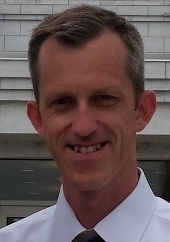
Dr. Jeremy J. Laukka is an Assistant Professor of Neuroscience and Neurology, University of Toledo College of Medicine and Life Sciences and Adjunct Assistant Professor at the Department of Neurology and Center for Molecular Medicine and Genetics. Research interest: Molecular, cellular and gross pathology of the X-linked Leukodystrophy Pelizaeus-Merzbacher disease (PMD). Investigate and characterize inherited myelin disease using novel and robust magnetic resonance imaging techniques (i.e. DTI and MRS) to understand the structural changes, integrity of microstructural infrastructure and metabolic activity over time. Establishing clinical tools to help monitor disease progression and severity to further refine our understanding of

Dr. Jeremy J. Laukka is an Assistant Professor of Neuroscience and Neurology, University of Toledo College of Medicine and Life Sciences and Adjunct Assistant Professor at the Department of Neurology and Center for Molecular Medicine and Genetics. Research interest: Molecular, cellular and gross pathology of the X-linked Leukodystrophy Pelizaeus-Merzbacher disease (PMD). Investigate and characterize inherited myelin disease using novel and robust magnetic resonance imaging techniques (i.e. DTI and MRS) to understand the structural changes, integrity of microstructural infrastructure and metabolic activity over time. Establishing clinical tools to help monitor disease progression and severity to further refine our understanding of the natural history of PMD and other neurodegenerative disorders.
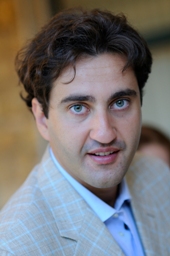
Gianluca Trifiro is MD, PhD currently working as Assistant Professor at the University of Messina (Italy) and Erasmus Medical Center of Rotterdam (Netherlands). He is external consultant for the Pharmacovigilance office of the Italian Drug Agency and of the Italian College General Practitioner research Institute Health Search. In the last years he has been involved in the coordination of several national and international multi-database drug safety projects, in which multiple healthcare databases are combined together to conduct Pharmacoepidemiology studies. Key words describing my main expertise: pharmacovigilance, pharmacoepidemiology, neuropsychiatry drugs, geriatric medicine, clinical pharmacology, public health

Gianluca Trifiro is MD, PhD currently working as Assistant Professor at the University of Messina (Italy) and Erasmus Medical Center of Rotterdam (Netherlands). He is external consultant for the Pharmacovigilance office of the Italian Drug Agency and of the Italian College General Practitioner research Institute Health Search. In the last years he has been involved in the coordination of several national and international multi-database drug safety projects, in which multiple healthcare databases are combined together to conduct Pharmacoepidemiology studies. Key words describing my main expertise: pharmacovigilance, pharmacoepidemiology, neuropsychiatry drugs, geriatric medicine, clinical pharmacology, public health
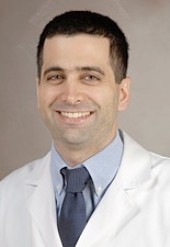
Dr. Raja Mehanna is an Assistant professor of neurology-Movement disorders specialist. Also in charge of the didactic formation of the movement disorders fellows at the University of Texas Health Science Center - Houston, Texas. He awrded with Movement Disorders Fellowship at the Cleveland Clinic - Cleveland, Ohio during Sept 2012 - Sept 2013. He is a member of American Academy of Neurology since 2007 and Movement Disorders Society since 2013.

Dr. Raja Mehanna is an Assistant professor of neurology-Movement disorders specialist. Also in charge of the didactic formation of the movement disorders fellows at the University of Texas Health Science Center - Houston, Texas. He awrded with Movement Disorders Fellowship at the Cleveland Clinic - Cleveland, Ohio during Sept 2012 - Sept 2013. He is a member of American Academy of Neurology since 2007 and Movement Disorders Society since 2013.
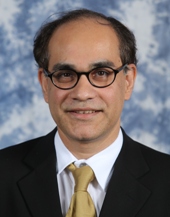
After completing Neurology residency at the Grant medical college in Mumbai, India, Dr. Menezes went on to do a 3 year Movement disorders fellowship at the University of Western Ontario in London, Ontario, Canada. He then redid residency in Neurology at the Cleveland Clinic as he decided to continue his work in Movement disorders in the United States. Dr. Menezes joined the faculty of neurology at the University of Toledo as an Assistant Professor in Neurology in 2010 and practices movement disorders at the renowned Gardner McMaster Parkinson's disease and movement disorders center. He has been the recipient of numerous

After completing Neurology residency at the Grant medical college in Mumbai, India, Dr. Menezes went on to do a 3 year Movement disorders fellowship at the University of Western Ontario in London, Ontario, Canada. He then redid residency in Neurology at the Cleveland Clinic as he decided to continue his work in Movement disorders in the United States. Dr. Menezes joined the faculty of neurology at the University of Toledo as an Assistant Professor in Neurology in 2010 and practices movement disorders at the renowned Gardner McMaster Parkinson's disease and movement disorders center. He has been the recipient of numerous awards during medical school, residency and later as faculty. He has been voted the best Attending by the neurology residents, has been awarded the University of Toledo Dean's award for teaching Excellence, has obtained the compassionate doctor recognition award and America's top Physicians 2013. Dr. Menezes is actively involved in Clinical research. His research interests include Parkinson's disease, Deep brain stimulation, Myoclonus, Paroxysmal Kinesigenic dyskinesia, Tremor, Tardive dyskinesia and the Restless leg syndrome. He is an author for various book chapters as well as a reviewer and editorial board member for various Movement disorders journals. He is actively involved in mentoring Movement disorders fellows and other trainees.
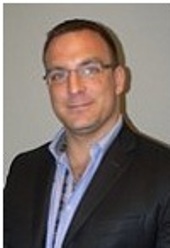
Dr. Radek Ptacek is an assistant professor at the Department of Psychiatry of the 1st Medical Faculty of Charles University, he is also the Director of master studies at the New York University in Prague. He is affiliated member of the Neuroscience Research Institute of the State University in New York. His main research interests are focused to neurodevelopmental disorders, especially ADHD and interdisciplinary cooperation between clinical psychology, psychiatry and neurology. Research interests: Neurodevelopmental disorders, ADHD, Genetics of mental disorders, Behavioral research and Neuropsychology.

Dr. Radek Ptacek is an assistant professor at the Department of Psychiatry of the 1st Medical Faculty of Charles University, he is also the Director of master studies at the New York University in Prague. He is affiliated member of the Neuroscience Research Institute of the State University in New York. His main research interests are focused to neurodevelopmental disorders, especially ADHD and interdisciplinary cooperation between clinical psychology, psychiatry and neurology. Research interests: Neurodevelopmental disorders, ADHD, Genetics of mental disorders, Behavioral research and Neuropsychology.
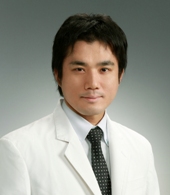
Dr. Kosuke Uehara was an assistant professor at the Department of Orthopaedic Surgery, Graduate School of Medicine, the University of Tokyo, Tokyo, Japan. Currently he is researching at Mayo Clinic in Minnesota, USA and he is also a visiting researcher at the Department of Orthopaedic Surgery, Graduate School of Medicine, the University of Tokyo, Tokyo, Japan. His research interests are in spinal cord injury, musculoskeletal disorder of the upper extremities, and peripheral nerve disorder.

Dr. Kosuke Uehara was an assistant professor at the Department of Orthopaedic Surgery, Graduate School of Medicine, the University of Tokyo, Tokyo, Japan. Currently he is researching at Mayo Clinic in Minnesota, USA and he is also a visiting researcher at the Department of Orthopaedic Surgery, Graduate School of Medicine, the University of Tokyo, Tokyo, Japan. His research interests are in spinal cord injury, musculoskeletal disorder of the upper extremities, and peripheral nerve disorder.
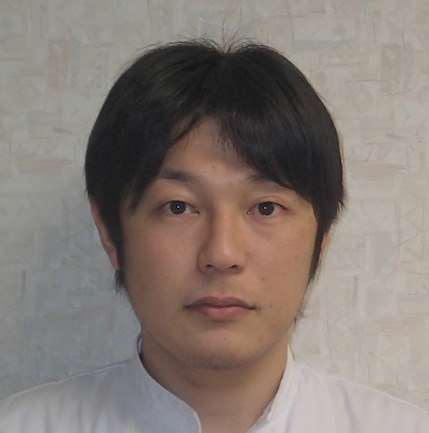
Dr.Shikino is now a Project Assistant Professor of Department of General Medicine, Chiba University Hospital, Japan. He earned his MD at Chiba University, Japan, in 2008. He earned an PhD in Clinical reasoning from the same institution in 2015. Research Interests: His main research interests include clinical reasoning, medical education, general medicine, internal medicine.

Dr.Shikino is now a Project Assistant Professor of Department of General Medicine, Chiba University Hospital, Japan. He earned his MD at Chiba University, Japan, in 2008. He earned an PhD in Clinical reasoning from the same institution in 2015. Research Interests: His main research interests include clinical reasoning, medical education, general medicine, internal medicine.

Dr. Ritesh A. Ramdhani is an Assistant Professor of Neurology and Neurosurgery, Icahn School of Medicine at Mount Sinai and an Associate Director of Neuromodulation, Mount Sinai Movement Disorders Division, New York. In March 2012 he was elected as a Resident Member of Alpha Omega Alpha, Lambda Chapter, Mount Sinai Medical Center. He was awarded with New York University Honors Scholar in 2003.

Dr. Ritesh A. Ramdhani is an Assistant Professor of Neurology and Neurosurgery, Icahn School of Medicine at Mount Sinai and an Associate Director of Neuromodulation, Mount Sinai Movement Disorders Division, New York. In March 2012 he was elected as a Resident Member of Alpha Omega Alpha, Lambda Chapter, Mount Sinai Medical Center. He was awarded with New York University Honors Scholar in 2003.
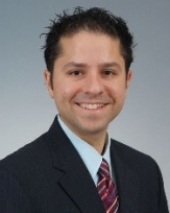
Director, Neuro ICU and Inpatient Neurology Services at Greenville Health System in Greenville, South Carolina, USA. He serves as a Clinical Associate Professor, University of South Carolina-Greenville School of Medicine. Previously, Ryan Hakimi, DO, MS was the first neurointensivist in the state of Oklahoma and the founding Medical Director, of the OU Medical Center Neurosciences Intensive Care Unit, where he served as an Associate Professor in the Department of Neurology at the University of Oklahoma Health Sciences Center. He was also on faculty at the Oklahoma State University Center for Health Sciences. He was a United States Department of

Director, Neuro ICU and Inpatient Neurology Services at Greenville Health System in Greenville, South Carolina, USA. He serves as a Clinical Associate Professor, University of South Carolina-Greenville School of Medicine. Previously, Ryan Hakimi, DO, MS was the first neurointensivist in the state of Oklahoma and the founding Medical Director, of the OU Medical Center Neurosciences Intensive Care Unit, where he served as an Associate Professor in the Department of Neurology at the University of Oklahoma Health Sciences Center. He was also on faculty at the Oklahoma State University Center for Health Sciences. He was a United States Department of Energy Applied Health Physics Fellow, graduated from the Michigan State University College of Osteopathic Medicine, and completed his medicine internship and neurology residency at Michigan State University College of Osteopathic Medicine-Botsford Hospital. He completed a fellowship in neurocritical care and stroke at Duke University Medical Center. He wrote the post-cardiac arrest hypothermia protocols for Durham County EMS (North Carolina) and later worked with the Oklahoma Office of the Medical Control Board to co-author the state's post-cardiac arrest treatment protocol which is applied throughout the state. He served as the Vice Chairman of the LifeShare Advisory Board (Oklahoma Organ Transplantation Services) from 2010-2013. Dr. Hakimi co-authored the Continuum article on the 'Neuroimaging of Hemorrhagic Stroke'. He is board certified in Neurology and Neurosonology (ultrasound physics, transcranial Doppler ultrasound, carotid ultrasound). He received a Presidential Citation in 2014 from the Neurocritical Care Society and in 2017 from the Society of Critical Care Medicine. He also received the 2017 ASN Volunteer Member Award.
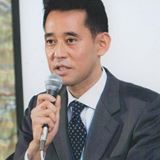
Dr. Masao Koda is an assistant professor at the Department of Orthopaedic Surgery, University Graduate School of Medicine, Chiba, Japan. He received his PhD in Postgraduate course from Chiba University Graduate School of Medicine. Research Interests in Regeneration of spinal cord, clinical trial, spine and spinal cord surgeries.

Dr. Masao Koda is an assistant professor at the Department of Orthopaedic Surgery, University Graduate School of Medicine, Chiba, Japan. He received his PhD in Postgraduate course from Chiba University Graduate School of Medicine. Research Interests in Regeneration of spinal cord, clinical trial, spine and spinal cord surgeries.

Dr. Papageorgiou obtained her Ph.D. in the Biological Sciences with a focus on the brain neuroimaging of morphine from the University of Texas-M.D. Anderson Cancer Center (UT-MDACC) following a M.H.Sc. in Psychiatric Epidemiology from Johns Hopkins University, Bloomberg School of Public Health, and a BA in Psychology and Sociology from the University of Georgia. She continued with three postdoctoral fellowships where she focused on examining: (i) the neuroimaging of pain and other symptoms as a result of cancer and its treatment (UT-MDACC); (ii) real-time fMRI neurofeedback of speech impairment (Baylor College of Medicine); and (ii) the mechanisms of cortical blindness

Dr. Papageorgiou obtained her Ph.D. in the Biological Sciences with a focus on the brain neuroimaging of morphine from the University of Texas-M.D. Anderson Cancer Center (UT-MDACC) following a M.H.Sc. in Psychiatric Epidemiology from Johns Hopkins University, Bloomberg School of Public Health, and a BA in Psychology and Sociology from the University of Georgia. She continued with three postdoctoral fellowships where she focused on examining: (i) the neuroimaging of pain and other symptoms as a result of cancer and its treatment (UT-MDACC); (ii) real-time fMRI neurofeedback of speech impairment (Baylor College of Medicine); and (ii) the mechanisms of cortical blindness using functional MRI and neuro-rehabilitation of vision as a result of cortical blindness using real-time functional MRI neurofeedback (Baylor College of Medicine). As an Assistant Professor of Neurology, as well as an Assistant Professor of Physical Medicine and Rehabilitation, the research of her laboratory-Investigational Targeted Brain Neuro-therapeutics-focuses on cortical and subcortical reorganization, and neuro-rehabilitation of cortical blindness, speech impairment and, chronic pain syndromes, as a result of neurological disorders, traumatic brain injury or, cancer-related symptoms using targeted and individualized real-time functional MRI neurofeedback methods. The current research goals of her laboratory are: (i) to examine and understand the neural mechanisms of brain plasticity in the design of treatments that will enhance nervous system recovery after a brain insult; (ii) to achieve long-term effects of personalized, neurofeedback interventions at targeted cortical and subcortical areas, and; (iii) to optimize rt-fMRI neurofeedback as 'a next generation' neurotherapeutic approach with the end goal to use this tool in the clinical setting. Dr. Papageorgiou is the recipient of several awards, such as a Hawn Pre-doctoral Scholar Award, a Hawn Post-doctoral Scholar Award, a McNair Foundation Award, the Fight for Sight Foundation Award, the McNair Medical Institute grant award, as well as National Institute of Health, Ruth L. Kirschstein Research Service Fellowship Awards.
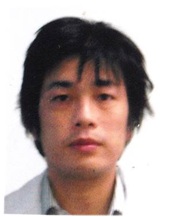
Dr. Yoshihiro Sowa is an Assistant Professor at the Departments of Plastic and Reconstructive Surgery, Kyoto Prefectural University of Medicine, Graduate School of Medical Sciences, Kawaramachi-Hirokoji Kajii-cho 465, Kamigyo-ku, Kyoto 602-8566, Japan. His research interests include in Regenerative medicine, Peripheral nerve, stem cells and nerve reconstruction.

Dr. Yoshihiro Sowa is an Assistant Professor at the Departments of Plastic and Reconstructive Surgery, Kyoto Prefectural University of Medicine, Graduate School of Medical Sciences, Kawaramachi-Hirokoji Kajii-cho 465, Kamigyo-ku, Kyoto 602-8566, Japan. His research interests include in Regenerative medicine, Peripheral nerve, stem cells and nerve reconstruction.
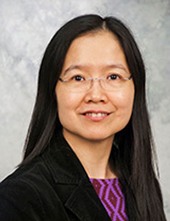
Dr. Xue-Jun Li, neurobiologist, graduated from the State Key Laboratory of Medical Neurobioloy, Shanghai Medical College of Fudan University in 2000. In 2002, she joined the Stem Cell Research Program at the University of Wisconsin-Madison in the USA, and worked as a postdoc (2002-2005) and then as an assistant scientist (2005-2007). In 2007, she was recruited as a tenure-track assistant professor in the Neuroscience Department at the University of Connecticut Health Center. She is also a PI of the University of Connecticut Stem Cell Institute. Dr. Li published the seminal report on the specification of spinal motor neurons from hESCs

Dr. Xue-Jun Li, neurobiologist, graduated from the State Key Laboratory of Medical Neurobioloy, Shanghai Medical College of Fudan University in 2000. In 2002, she joined the Stem Cell Research Program at the University of Wisconsin-Madison in the USA, and worked as a postdoc (2002-2005) and then as an assistant scientist (2005-2007). In 2007, she was recruited as a tenure-track assistant professor in the Neuroscience Department at the University of Connecticut Health Center. She is also a PI of the University of Connecticut Stem Cell Institute. Dr. Li published the seminal report on the specification of spinal motor neurons from hESCs in 2005. Her lab has recently successfully established human stem cell models for spinal muscular atrophy and hereditary spastic paraplegias. Currently, the research in her lab is focused on studying the specification of neuronal subtypes including cortical motor neurons in the forebrain as well as modeling motor neuron degenerative diseases using human pluripotent stem cells.
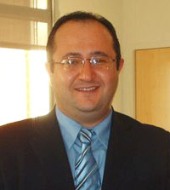
Dr. Ilker Kudret Sariyer is an assistant Professor (Tenure Track) at the department of Neuroscience, Center for Neurovirology, Temple University School of Medicine, Philadelphia, USA. His Research interests lie in understanding molecular mechanism of JC virus reactivation in immuno compromised individuals, identifying novel biomarkers for the early detection of the viral reactivation, and developing therapeutic interventions for the treatment of progressive multifocal leucoencephalopathy (PML), a fetal demyelinating disease of the brain caused by JC virus.

Dr. Ilker Kudret Sariyer is an assistant Professor (Tenure Track) at the department of Neuroscience, Center for Neurovirology, Temple University School of Medicine, Philadelphia, USA. His Research interests lie in understanding molecular mechanism of JC virus reactivation in immuno compromised individuals, identifying novel biomarkers for the early detection of the viral reactivation, and developing therapeutic interventions for the treatment of progressive multifocal leucoencephalopathy (PML), a fetal demyelinating disease of the brain caused by JC virus.
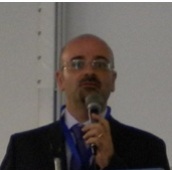
Domenico De Berardis was born in Novembre 20, 1968. He holds both the Ph.D. and M.D. degrees, works as Psychiatrist in the 'real world' clinical practice at the NHS Department of Mental Health, Psychiatric Service of Diagnosis and Treatment, Hospital 'G. Mazzini', ASL 4 Teramo, Italy and collaborates independently with the Institute of Psychiatry of G. d'Annunzio University Chieti-Pescara, Italy. He is specialized in Medicina delle Farmacotossicodipendenze, has attained a Ph.D. in 'Functional Neuroimaging' at the Institute for Advanced Biomedical Technologies (ITAB) of the University G. d'Annunzio of Chieti and achieved a master in 'Clinical Psychopharmacology' at the Scientific Institute

Domenico De Berardis was born in Novembre 20, 1968. He holds both the Ph.D. and M.D. degrees, works as Psychiatrist in the 'real world' clinical practice at the NHS Department of Mental Health, Psychiatric Service of Diagnosis and Treatment, Hospital 'G. Mazzini', ASL 4 Teramo, Italy and collaborates independently with the Institute of Psychiatry of G. d'Annunzio University Chieti-Pescara, Italy. He is specialized in Medicina delle Farmacotossicodipendenze, has attained a Ph.D. in 'Functional Neuroimaging' at the Institute for Advanced Biomedical Technologies (ITAB) of the University G. d'Annunzio of Chieti and achieved a master in 'Clinical Psychopharmacology' at the Scientific Institute and University Vita-Salute San Raffaele, Milan. He has also achieved a master in 'Healthcare Communication' in 2013 at University of Teramo and had attended in the same year the 'Schizophrenia Masterclass' at the Hospital Clinic of Barcelona (director: Prof. E. Vieta). He is specialized in Cognitive-Behavioral Therapy (CBT) and works also as psychotherapist mainly treating patients with personality disorders and OCD. He is the principal investigator of several research projects, mostly related to alexithymia, anxiety disorders, suicide, schizophrenia, neuroimaging, and clinical psychopharmacology. He has published over 60 articles with impact factor, for an h-index of 17, and has frequently participated in national and international congresses as a speaker or through oral or written communications. These papers together with several book chapters reflect his main research lines and areas of recognized expertise on alexithymia, anxiety and mood disorders, functional magnetic resonance and clinical psychopharmacology. He regularly collaborates with professors and researchers from other universities in Italy and other European as well as US and Indian countries. His professional activities also include the reviewing of scientific manuscripts for high-impact journals and is a member of the Editorial Board of ISRN Psychiatry, Annals of Depression and Anxiety, International Journal of Clinical Toxicology, Journal of Psychology and Psychotherapy Research and Journal of Sleep Medicine and Disorders. He is Associate Editor of Research and Advances in Psychiatry and Academic Editor of British Journal of Medicine and Medical Research. Keywords: clinical psychiatry, alexithymia, anxiety disorder, mood disorders, schizophrenia, functional magnetic resonance, clinical psychopharmacology.
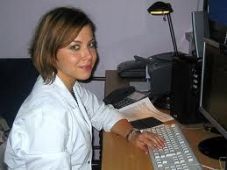
Dr. Zuzana Nedelskaisa neurologist currently involved in translational research on early spatial navigation impairment in humanswith Alzheimer's disease and other neurodegenerative dementias at Memory Disorders Clinic, Charles University in Prague and longitudinal Czech brain Aging Study. She has recently completed a PhD in Neuroscience from Charles University in Prague. Since her research fellowship at Alzheimer's Disease Imaging Research at Mayo Clinic Rochester she is focusing on imaging and clinical diagnosis of the dementia with Lewy bodies.

Dr. Zuzana Nedelskaisa neurologist currently involved in translational research on early spatial navigation impairment in humanswith Alzheimer's disease and other neurodegenerative dementias at Memory Disorders Clinic, Charles University in Prague and longitudinal Czech brain Aging Study. She has recently completed a PhD in Neuroscience from Charles University in Prague. Since her research fellowship at Alzheimer's Disease Imaging Research at Mayo Clinic Rochester she is focusing on imaging and clinical diagnosis of the dementia with Lewy bodies.
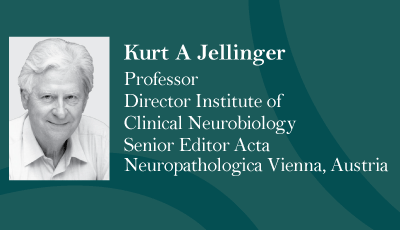
All articles are fully peer reviewed, free to access and can be downloaded from our ClinMed archive.
Clinical Medical Image Library: 93.51
International Journal of Critical Care and Emergency Medicine: 92.83
International Journal of Sports and Exercise Medicine: 91.84
International Journal of Womens Health and Wellness: 91.79
Journal of Musculoskeletal Disorders and Treatment: 91.73
Journal of Geriatric Medicine and Gerontology: 91.55
Journal of Infectious Diseases and Epidemiology: 91.55
Clinical Medical Reviews and Case Reports: 91.40
International Archives of Nursing and Health Care: 90.87
International Journal of Ophthalmology and Clinical Research: 90.80
International Archives of Urology and Complications: 90.73
Journal of Clinical Nephrology and Renal Care: 90.33
Journal of Family Medicine and Disease Prevention: 89.99
Journal of Clinical Gastroenterology and Treatment: 89.54
Journal of Dermatology Research and Therapy: 89.34
International Journal of Clinical Cardiology: 89.24
International Journal of Radiology and Imaging Technology: 88.88
Obstetrics and Gynaecology Cases - Reviews: 88.42
International Journal of Blood Research and Disorders: 88.22
International Journal of Diabetes and Clinical Research: 87.97